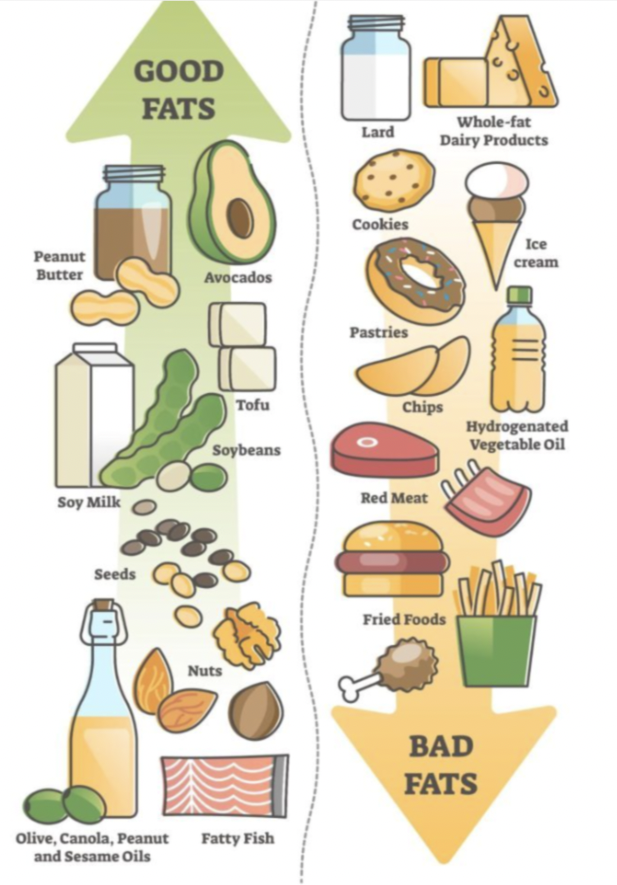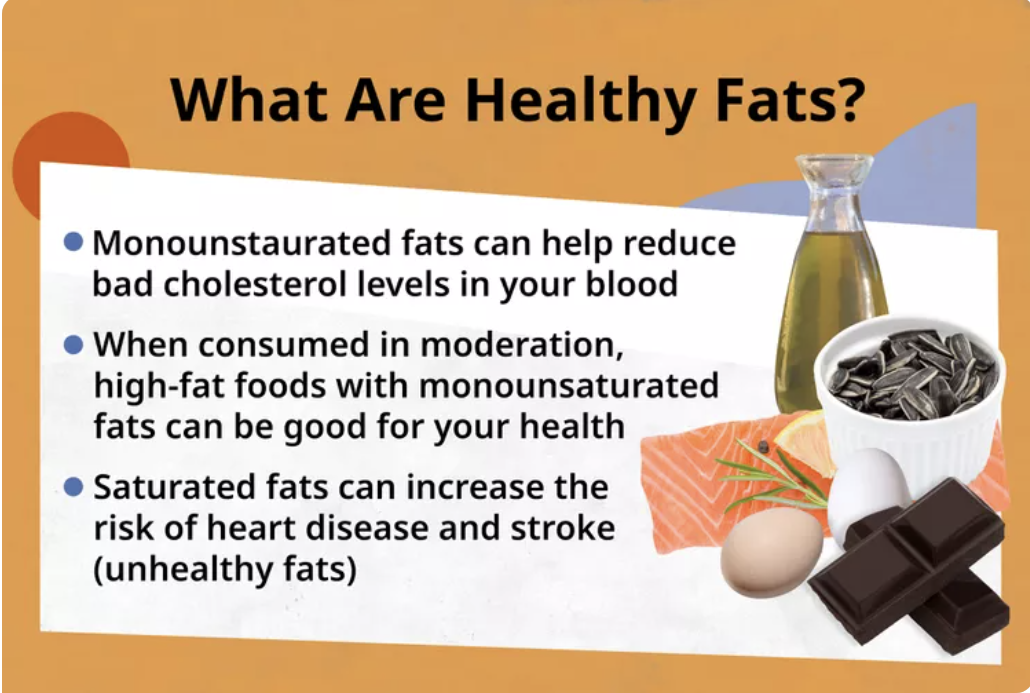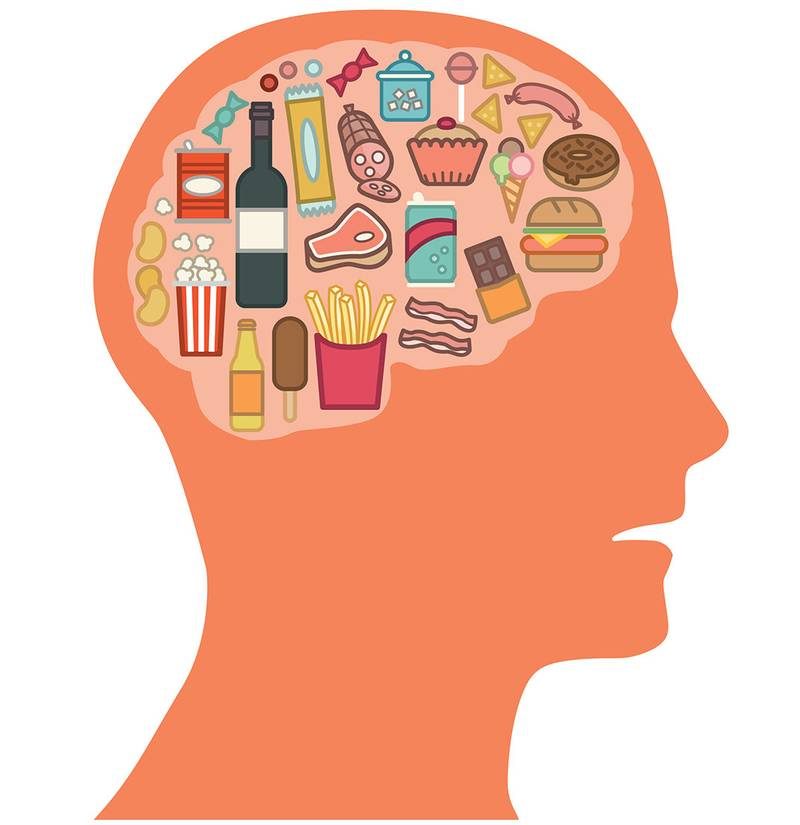How the body controls and regulates healthy eating
There are two primary neurons that send signals to our brain to either start eating or stop eating, which maintains metabolic homeostasis in the body. An article by Jais and Brüning states that AgRP neurons are considered orexigenic neurons which stimulate appetite, whereas POMC neurons are anorexigenic neurons that inhibit appetite through hormones like insulin and leptin (2017). These neurons receive signals in the arcuate nucleus (ARC) of the hypothalamus followed by binding to other neurons in the paraventricular nucleus of the hypothalamus. These processes and signaling pathways generally regulate energy homeostasis and cues for food intake. However, different diets and foods may alter this process, specifically through insulin and leptin resistance [1].
Insulin and leptin resistance occurs when an individual obtains too many nutrients or too many of a specific nutrient and their receptors no longer function correctly due to the blockage of their receptors from proteins like SOCS. This, along with inflammatory responses due to the foods that often taste good and are high in fat negatively regulate insulin, leptin, and inflammation, causing less synapses and even apoptosis of AgRP and POMC neurons. This cascade of events in the brain diminishes the cue of being full and to stop eating, leading to obesity and metabolic syndrome. One diet that may contribute is a high fat diet (HFD). [1]
What is a high fat diet?
HFD is defined by the ratio of macro-nutrients consumed which are fats, carbohydrates, and protein. To be high fat, fat must take up 40-45% of the daily caloric intake as 20-40% is considered moderate [2]. There are, however, healthy fats and high fatty foods and unhealthy fats as portrayed in figure 1. Moreover, some fats help maintain the brains function because of its high energy intake. As such, healthy fats may help absorb vitamins like vitamin A, D, and E, which are fat soluble instead of water soluble [3].
Figure 1. Healthy fatty foods compared to bad fatty foods [4].

Healthy vs unhealthy fats
Unsaturated fats are typically considered the “healthy” fats which can either be monounsaturated or polyunsaturated (Figure 2). Foods of this sort consist of avocado, olives, some nuts and seeds, fish, and dark chocolate. On the other hand, saturated fats and trans fats are unhealthy if consumed too much. These mostly come from animal sources and some plant sources and include fatty meat, butter, cheese, cream, and more. Due to the composition of saturated fats, the body cannot break them down as easily causing blockages and harm to enzymes [5].
Figure 2. What healthy fats are compared to unhealthy fats [5].

Conclusion of the effects of HFD on hypothalamic inflammation and eating habits
Many stress response pathways such as pro-inflammatory pathways in the hypothalamus are activated by HFD which leads to insulin and leptin resistance due to inflammatory mediators like cytokines. These changes can take place as early as 24 hours after eating or over longer periods of time leading to more chronic effects like altered synaptic plasticity. Altogether, the inflammation in the brain from a HFD contributes to the uncoupling of food intake and energy expenditure, furthering obesity and metabolic syndrome (Figure 3) [1].
Figure 3. The uncoupling of food intake and energy expenditure.

Fig. 3. Artstract created by M. Olson
References
[1] Jais, A., & Brüning, J. C. (n.d.). Hypothalamic inflammation in obesity and metabolic disease. The Journal of Clinical Investigation, 127(1), 24–32. https://doi.org/10.1172/JCI88878
[2] David, M. (2014, February 27). What is a High-Fat Diet: Is it Healthy and Safe? Institute for the Psychology of Eating. https://psychologyofeating.com/high-fat-diet-healthy-safe/
[3] What Are Healthy Fats? 8 High-Fat Foods for Your Diet. (n.d.). Verywell Health. Retrieved April 7, 2024, from https://www.verywellhealth.com/healthy-fats-7498653
[4] Admin. (2022, June 1). Four Myths About Eating Fats. YMCA. https://lafayettefamilyymca.org/myths-about-eating-fats-2/
[5] Facts about fat. (2022, February 23). Nhs.Uk. https://www.nhs.uk/live-well/eat-well/food-types/different-fats-nutrition/
